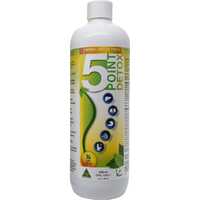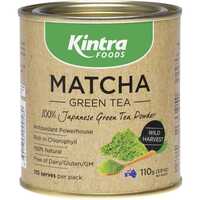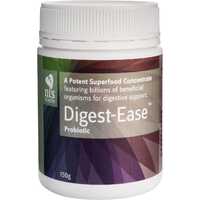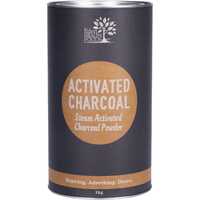A bloated stomach is something that is quite horrible to deal with, yet it’s something that many people experience each and every day. Before looking at how to get rid of bloating, it's important to consider the reasons why you may suffer from a bloated tummy, which can include:
- Lack of digestive enzymes
- Lack of healthy probiotics in the body
- Too much dietary fibre
- Lactose intolerance
- A great deal of stress in your life
- Chewing gum
- Drinking carbonated soda
…and on and on it goes. A bloated stomach isn’t just uncomfortable, but it can actually change the way you look. For some, it can really make them appear as though they’ve gained a good 4 to 7kgs.
If your bloating is caused by stress, changing your diet won’t help much, you'll instead need to find ways to reduce stress. If, however, you have a bloated stomach because you’re eating the wrong foods, making some changes to your daily diet can definitely help.
In addition to cutting out foods that cause bloating, you’ll also want to focus on eating foods that actively help to reduce bloating as well. Even just a little of these foods can go a long way.
Let’s look at some of the best foods to choose to help reduce bloating.
Plain Yoghurt: Probiotics to Reduce Bloating
Okay, so this one can go either way. If you are lactose intolerant, stay away from yoghurt because it will likely cause more bloating than it will solve. However, if you aren’t lactose intolerant, then yoghurt can give you a dose of healthy probiotics, which can help reduce the feelings of bloating in the body.
Just try and stay away from flavoured, sweetened forms of yoghurt because the added sugar can also cause extra bloating.
Pineapple: Digestive Enzymes to Reduce Bloating
Next up on the list is pineapple. Pineapple is a great food to eat, especially after a meal because it contains naturally occurring digestive enzymes that will help break down the foods you eat.
It’s important that you have enough digestive enzymes in your system because, without them, food can sit in the gut longer, which in turn will lead to the bloating you experience.
Additionally, getting a full array of digestive enzymes is important so that your body can absorb all the nutrients found in the foods you are eating.
Fennel Seeds: Reduce Bloating & Flatulence
Okay, so you may not eat the seeds directly (you can though if you really want!) but drinking fennel tea or using fennel spice can both help reduce bloating.
They contain a specific compound that will help to relax GI spasms and allow gassy cramps to subside, which then provides fast relief from a bloated stomach.
This is not only great for those who just have a bloated tummy, but it’s also a great remedy for those suffering from flatulence.
Celery: Reduce Water Retention
Celery, which most people consider practically water, does have certain compounds that can actually work very well to help banish bloating.
These compounds help to reduce water retention, which then leads to a slimmer effect. If your bloating is due to something other than water, you may not see results but if it’s a temporary thing because you just happened to eat too much salt the day before or because you’re having your period, celery can make a big difference.
Plus, celery is practically calorie free, so it’s a great addition to just about any diet plan for those seeking weight loss results.
Honeydew: Potassium to Reduce Bloating
Honeydew is another great food to eat if you’re feeling bloated. The primary reason why honeydew earns top marks is that it’s rich in potassium, which helps to counteract sodium and will flush any excess retention of water weight from your system.
Honeydew is also a deliciously sweet treat that you can have when you want to satisfy those nagging dessert cravings, as it not only tastes great but also only contains a few calories.
If you aren’t a fan of honeydew, bananas can also be quite a good option as they too pack a good dose potassium. Additionally, they’re quite easy on the digestive system so most people won’t bloat at all from eating bananas.
Kiwi: Jumpstart Bowel Movement
Looking for another fruit to add to your diet? Try Kiwi! Kiwis are often left off the menu for many people for the simple reason that they lean towards other, more common fruits instead, such as apples, oranges, and bananas.
Kiwis are absolutely packed with nutrients. They’re loaded with vitamin C and more importantly, can help to jumpstart bowel movements as well. So if you’re backed up, kiwi can be a great choice to help get things moving again.
Those who suffer from IBS symptoms will really benefit from eating kiwi, so it’s a great idea to get one in a day.
Green Tea: Diuretic to Reduce Bloating
Green tea, or matcha tea, is a great choice to help combat a bloated stomach. Not only is this tea variety a great source of antioxidants, it’s also loaded with diuretic properties as well. This again will help to reduce any bloating you may be experiencing due to water retention and at the same time also assist with reducing inflammation as well. Green tea is one of the healthiest beverages that you can consume so try and serve yourself a cup (or two!) a day.
You simply can’t go wrong with green tea, so consider adding it to your diet plan today.
So there you have it, some of the best foods to eat if you want to put an end to feeling uncomfortable with bloating. If you are careful with your food choices and avoid foods that cause bloating, while also eating some of the foods we’ve listed above, you’ll soon discover your own cure for bloating.
...and remember, qualified nutritionists at Healthy Being are available to offer further general advice to help guide you in selecting the right products. So please, feel free to contact us at any time!
 Dr Peter Succar heads up the Product Research Team at Healthy Being and is an enthusiastic Health & Fitness Lifestyle Coach. He's passionate about helping others obtain optimum health, advocating realistic and achievable changes in diets and lifestyles that promote the body’s natural immunity, its ability to self-heal and achieve overall mental and physical well-being.
Dr Peter Succar heads up the Product Research Team at Healthy Being and is an enthusiastic Health & Fitness Lifestyle Coach. He's passionate about helping others obtain optimum health, advocating realistic and achievable changes in diets and lifestyles that promote the body’s natural immunity, its ability to self-heal and achieve overall mental and physical well-being.


 Certified Organic
Certified Organic Vegan Friendly
Vegan Friendly  Vegetarian
Vegetarian Organic Ingredients
Organic Ingredients Dairy Free
Dairy Free Gluten Free
Gluten Free Keto Friendly
Keto Friendly

































